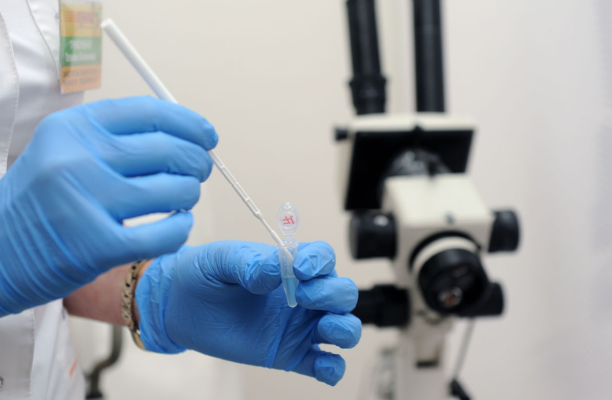Protecting patient safety: The importance of a lockable medical fridge

In healthcare settings, patient safety hinges on countless seemingly small yet significant details – one of which being the secure storage of temperature-sensitive medication. A lockable medical fridge may seem like a basic piece of equipment, but it plays a vital role in ensuring compliance, preserving medicine efficacy, and ultimately safeguarding patient wellbeing.
Whether in a GP surgery, pharmacy, hospital, or care home, medical fridges are essential to prevent temperature fluctuations, protect controlled substances, and maintain strict regulatory standards. In this blog, we’ll explore why lockable fridges are so important, answer key compliance questions like “what temperature should medication be stored in a fridge?”, and explain how often these temperatures should be monitored.
Why are lockable medical fridges essential?
Healthcare professionals routinely handle medications and vaccines that are highly sensitive to temperature changes. If stored incorrectly – even for a short period – these substances can lose their potency or become unsafe for use.
A lockable medical fridge provides:
• consistent, controlled temperature conditions for safe storage
• physical security to prevent unauthorised access to potentially harmful or high-value medications
• compliance with national healthcare guidelines and regulations.
This makes them a must-have for any organisation storing prescription drugs, vaccines, insulin, antibiotics, or blood samples.
What temperature should medication be stored in a fridge?
A commonly asked question is: what is the required temperature range for medication fridges? According to the UK’s Medicines and Healthcare products Regulatory Agency (MHRA), medications requiring cold storage must be kept between +2°c and +8°c.
Storing medications outside of this range – even briefly – can render them ineffective or unsafe. For example, vaccines exposed to high temperatures may no longer offer immunity, while insulin kept below 2°c may freeze and degrade.
How often should a medication fridge temperature be checked?
Having established what is the required temperature range for medication fridges, it is critical for medicine integrity to monitor the medication fridge temperature regularly. So, how often should a medication fridge temperature be checked?
• at least twice daily – once at the start of the working day and once at the end
• record each check – log the readings manually or via an automated system
• use a minimum/maximum thermometer – this provides details on any temperature fluctuations between checks.
Many medical fridges now come with built-in digital data loggers and alarms to alert staff to temperature breaches, offering added peace of mind.
How medical fridges help ensure compliance
Regulations for medication storage are not just best practice – they’re a legal requirement. Organisations that fail to comply may face fines, inspections, or, more importantly, risk harming patients.
A lockable medical fridge ensures compliance by:
• preventing tampering or theft – particularly vital for controlled drugs
• maintaining a validated cold chain – ensuring medicine remains safe from manufacture to administration
• supporting record-keeping – many modern units include USB or WIFI logging to support audits.
Maintaining your medication fridge temperature within the correct range is a key part of any CQC (Care Quality Commission) inspection or pharmacy standard review.
Who benefits from medical fridge security?
The secure, temperature-controlled storage of medication is important across a wide variety of sectors, including:
• GP practices and clinics – for vaccines, antibiotics, and insulin storage
• hospitals – for storing blood products, anaesthetics, and high-value medications
• pharmacies – to preserve the efficacy of over the counter and prescription cold-chain products
• care homes – where multiple patient prescriptions are managed under one roof
• schools and nurseries – storing emergency medications like epinephrine or insulin, or antibiotics for children.
In all these settings, a lockable medical fridge provides an added layer of protection – not just for the medication itself, but for the people who rely on it.
Choosing the right medical fridge
When investing in a fridge for your practice, there are several key factors to consider:
• size and capacity – will you be storing small vials or bulk orders?
• Security – is the fridge lockable, and does it meet controlled drugs regulations?
• temperature controls – does it include a digital display, min/max thermometer, and alarm system?
• data recording – can it track and log medication fridge temperatures for audit and compliance?
Many healthcare providers also opt for dual-compartment fridges to separate different medication types, or those with backup power options in case of outages.
Maintenance and best practices
To get the most from your medical fridge, it’s important to follow these best practices:
1. Don’t overload the fridge—air must circulate freely.
2. Keep medication in original packaging to protect it from light and contamination.
3. Avoid frequent door openings, which can disrupt internal temperatures.
4. Regularly calibrate or service your fridge to ensure accuracy and performance.
By embedding these habits into your daily procedures, you can ensure patient safety while making your audits stress-free.
JPen Medical has you covered
At JPen Medical, we know that safe medication storage is non-negotiable. That’s why we offer a full maintenance service for your lockable medical fridges – tailored to the highest compliance standards required of the NHS, pharmacies and private healthcare settings. No matter your medical fridge specification, we have the right service to ensure your medication is kept secure, compliant, and perfectly chilled.
Looking for support beyond just the fridge? JPen Medical also provides expert advice on what temperature should medication be stored in a fridge, how to set up your monitoring schedule, and training resources on how often a medication fridge temperature should be checked.
Contact us today to speak to one of our friendly advisors to find the perfect cold storage servicing solution for your team.